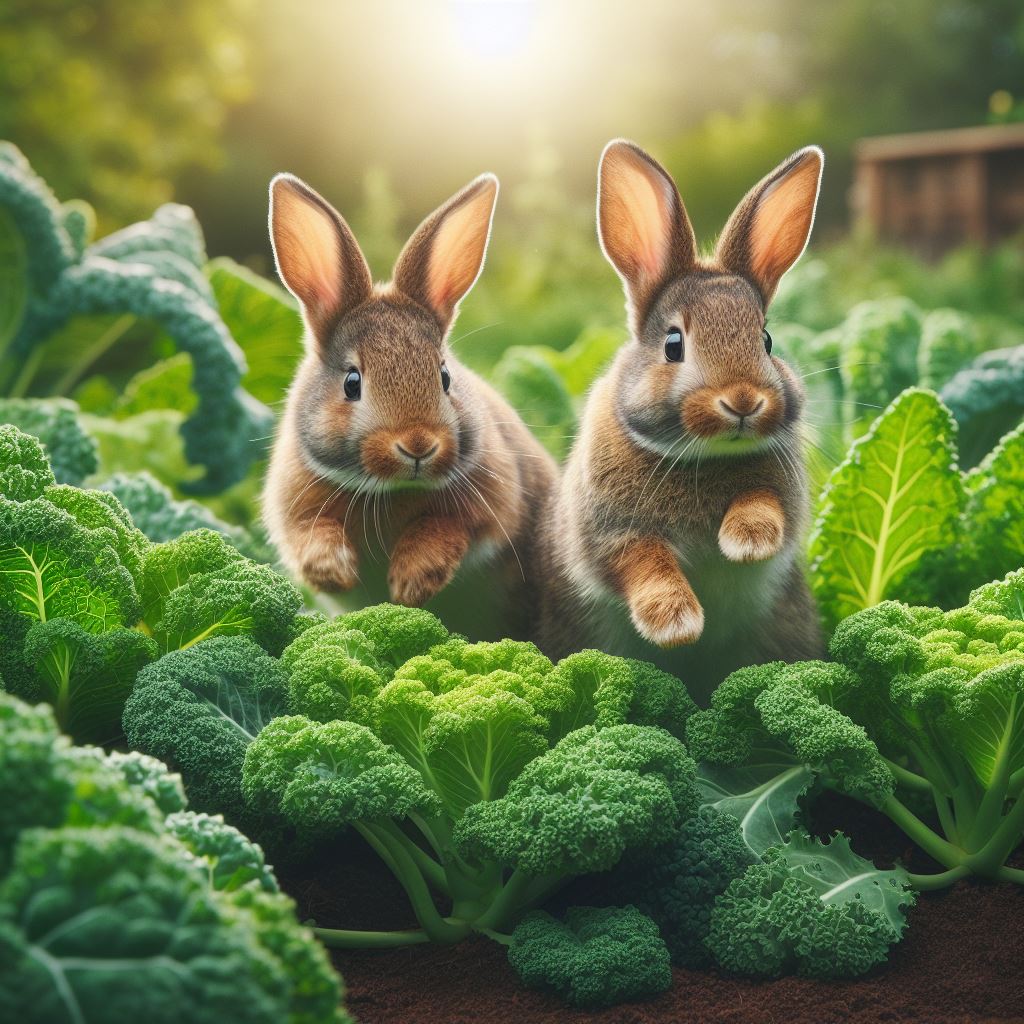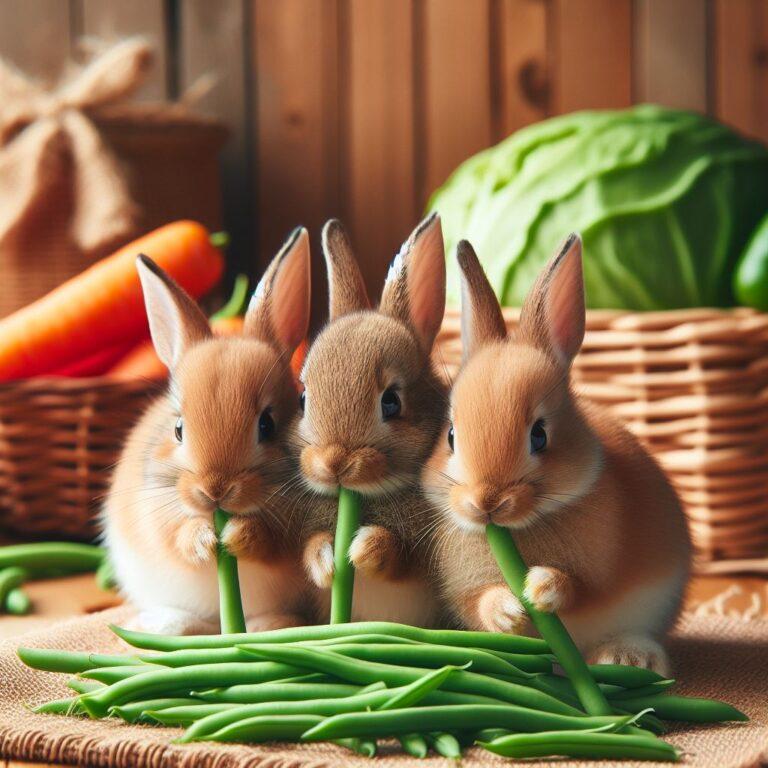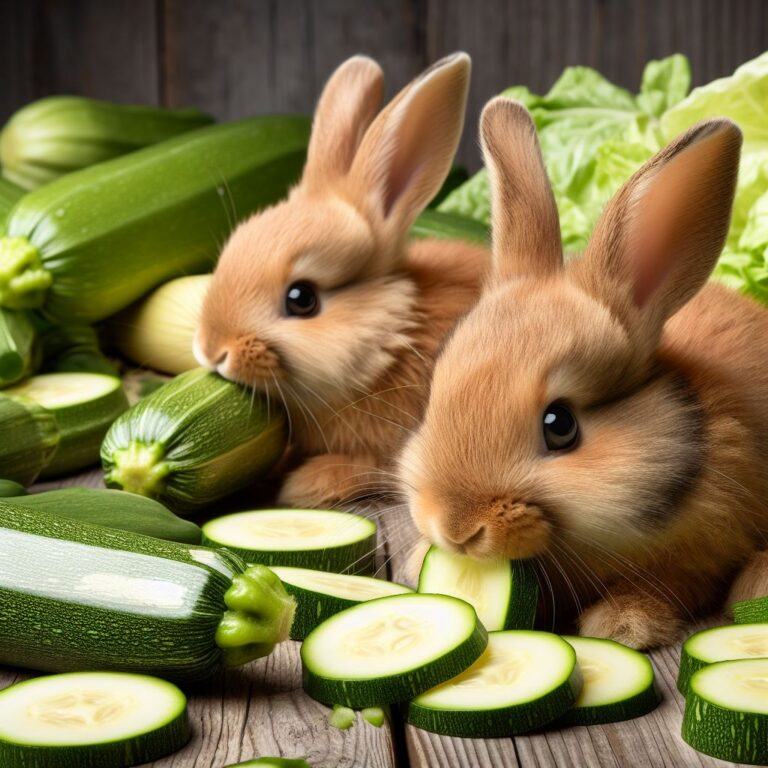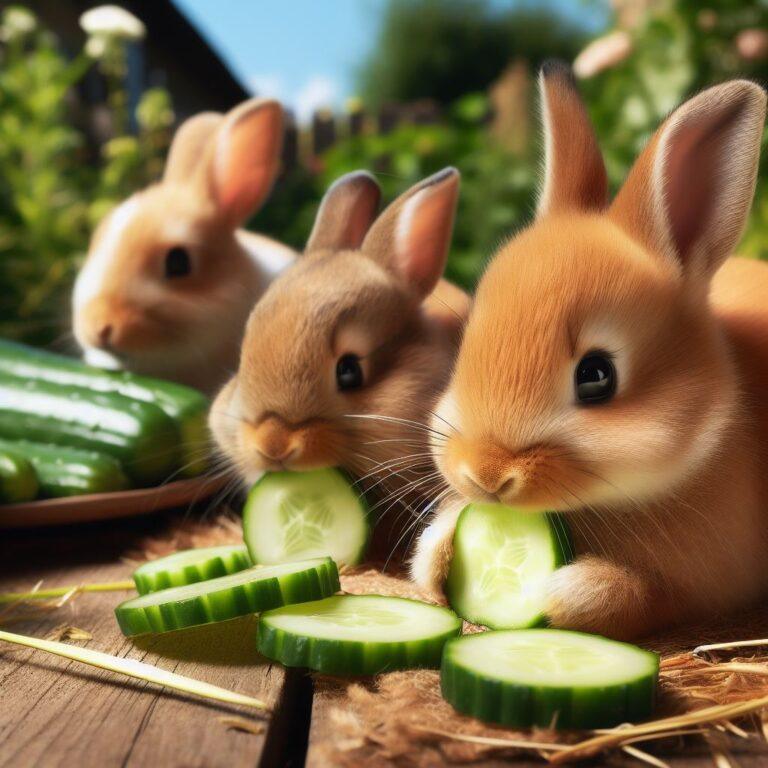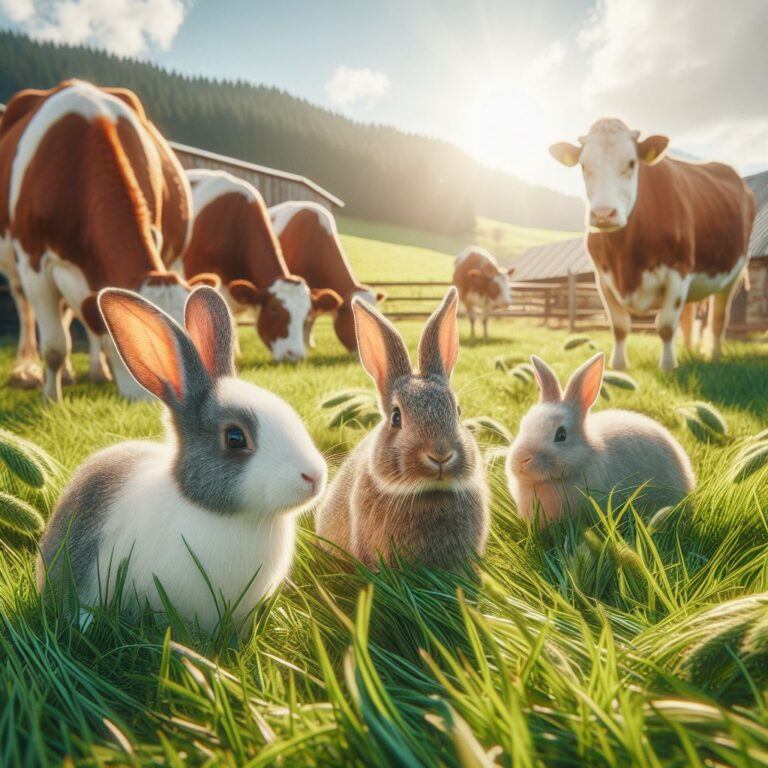Can Rabbits Safely Eat Kale
Yes, rabbits can safely eat kale, but as always as I say here, in moderation. Kale provides beneficial nutrients like vitamins A, C, and K as well as calcium. However, it should only make up a small portion of a rabbit’s daily diet due to its oxalate and calcium content.
As responsible rabbit owners, we must understand our pet’s nutritional needs and the potential impacts of introducing new foods like kale.
Rabbits are herbivores that thrive on a high-fiber diet, primarily consisting of unlimited grass hay and a small amount of fresh vegetables such as kale, green beans, pumpkin, and celery.
A Rabbit’s Balanced Diet and Kale Nutrition
Rabbits have unique dietary requirements that support their digestive system and overall health. Their diet should be low in fat and high in insoluble fiber from grass hay, which aids in proper digestion and prevents issues like hairballs and gastrointestinal stasis.
In addition to hay, rabbits need a daily serving of fresh greens and a limited portion of other vegetables to meet their vitamin, mineral, and nutrient needs. This is where kale can play a role as an occasional treat.
Kale is a nutrient-dense leafy green that contains vitamins A, C, and K, as well as calcium, potassium, and fiber.
The high vitamin A content supports a rabbit’s vision and reproductive health, while vitamin C boosts immunity. Calcium is essential for strong bones and teeth development.
However, kale also contains oxalates, which can bind to calcium and increase the risk of urinary and kidney issues in rabbits if consumed excessively.
Its calcium levels are relatively high compared to other greens such as cabbage or romaine lettuce.
Potential Benefits and Risks of Feeding Kale to Rabbits
When fed properly to rabbits, kale can provide several health benefits:
Fiber: Kale is a good source of insoluble fiber, which supports healthy digestion and prevents obesity and other weight-related issues in rabbits.
Vitamins: The vitamins A, C, and K found in kale contribute to a rabbit’s overall well-being, supporting eye health, immunity, and proper blood clotting.
Calcium: Adequate calcium intake is crucial for developing and maintaining strong bones and teeth in growing rabbits. However, too much calcium can lead to bladder sludge.
Despite these potential benefits, there are risks to be aware of when feeding kale to rabbits:
Oxalates: If a rabbit consumes too many oxalates from kale and other foods, it can increase the risk of calcium absorption issues, kidney stones, and other urinary problems.
Digestive Issues: Kale is high in insoluble fiber. While this is beneficial in moderation, too much can lead to gas, bloating, diarrhea, or intestinal obstruction in sensitive rabbits.
Choking Hazard: The tough stems and ribs of kale may pose a choking or intestinal blockage risk if not properly prepared and removed before feeding.
To minimize risks, all of us here at cananimalssafelyeat recommend introducing kale slowly and in appropriate portions while monitoring your rabbit’s reaction.
If any signs of digestive upset occur then we highly recommend removing kale from their diet and having a chat with your vet.
Safely Incorporating Kale into a Rabbit’s Diet
If you decide to feed your rabbit kale, here are our specific guidelines which we recommend following to ensure safe consumption:
Preparation: Always wash kale thoroughly to remove any dirt, pesticide residue, or contaminants. Remove the tough stems and ribs, as these are difficult for rabbits to digest. Chop or tear the leaves into bite-sized pieces.
Portion Control: Kale should never make up more than 10-15% of a rabbit’s daily intake of fresh greens and vegetables. A few small leaves or a couple of tablespoons of chopped kale is a reasonable serving size for most adult rabbits.
Variety: While kale can be a healthy addition, it’s best to rotate it with other safe greens and vegetables to ensure a balanced diet. Options like romaine lettuce, cilantro/coriander, and carrot tops are excellent alternatives.
When first introducing kale, start with a very small amount and observe your rabbit’s reaction over 24 hours. Watch for signs of digestive distress like diarrhea, gas, or discomfort, which may indicate kale doesn’t agree with your pet.
If you notice any concerning symptoms or have specific questions about your rabbit’s dietary needs, it’s always advisable to consult with a qualified veterinarian.
They can provide personalized guidance based on your rabbit’s age, size, and overall health.
Remember, a diet consisting primarily of unlimited grass hay supplemented with a variety of fresh greens and occasional vegetable treats is key to maintaining your rabbit’s well-being.
With proper portion control and monitoring, kale can be a safe and nutritious addition to their balanced diet.

